


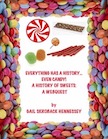


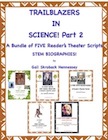

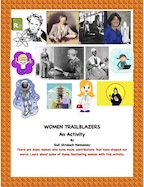
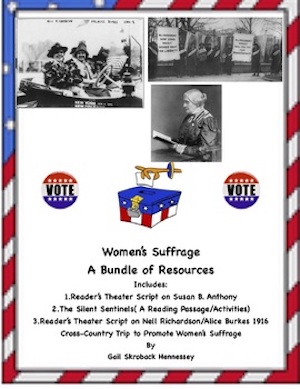
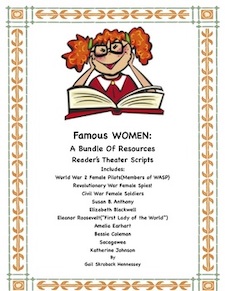
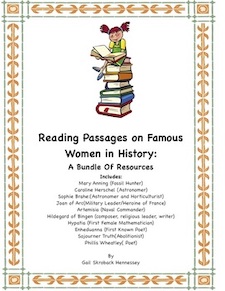

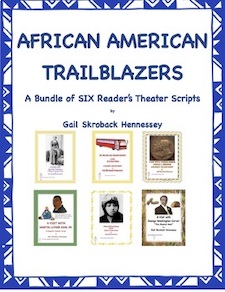
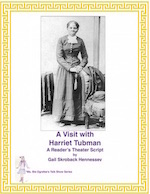
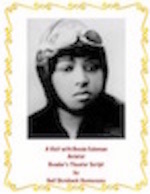
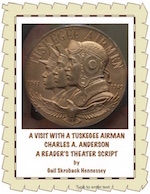






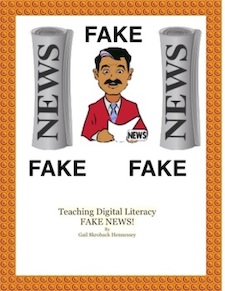

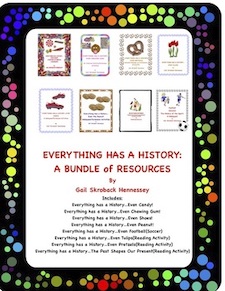
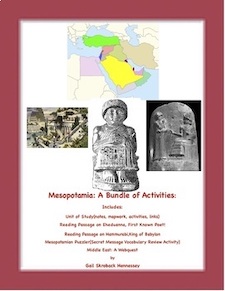
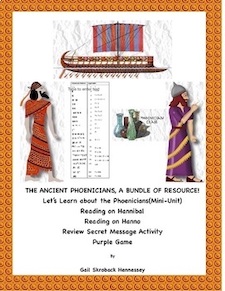
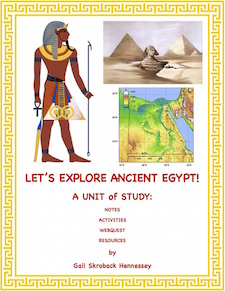
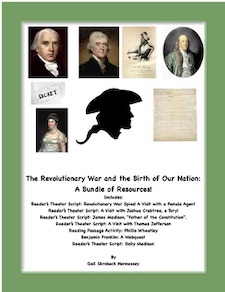
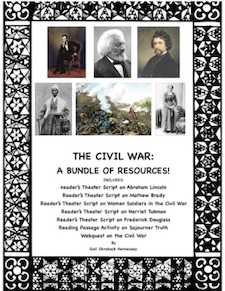

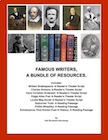
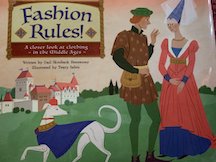
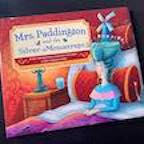
My Book-Mrs. Paddington and the Silver Mousetraps
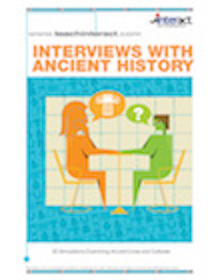


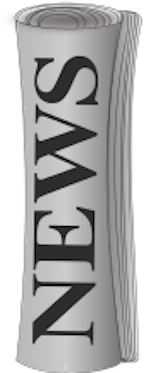

Anti-Bullying Resources

Bell Ringers!

Updated regularly
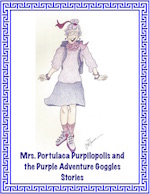
Mrs. Portulaca Purpilopilis
and the Purple Adventure Goggles




Facts to Wow your Friends!

 Teaching Ideas!
Teaching Ideas!
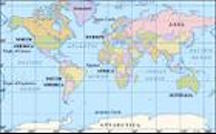
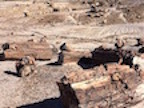






` `

Mike Rowe
Host of Discovery Channel's Dirty Jobs
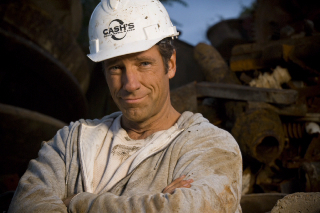
In addition to Dirty Jobs, Mike is the voice of Discovery Channel's Deadliest Catch and the national spokesman for Ford Trucks.
1. Can you explain to young people just what a career in television is about?
I doubt it. In fact, I doubt that I could explain it to old people. There are dozens of different jobs in production, programming, set design, writing, acting, directing, and too many other opportunities to list. The only way to really get a feel for the business is to take an internship at a local station, and try your hand at every available position. Or better yet, work on the road with a crew like the one on Dirty Jobs(Dirty Jobs). Television, more than most other vocations, can't really be studied. It has to be done. Ultimately, your career in television will have a lot to do with why you got into it to begin with, especially if you're interested in working in front of the camera. Television often attracts people who are looking for easy money and overnight fame, neither of which happens very often. Television can be a lot of fun. But working in television is exactly that -- work.
2. What is the best part of your job?
That's a toss up. I really love the fact that no two days for me are ever the same. Dirty Jobs(Dirty Jobs) has no set, so we're constantly on the move, always meeting new people and going to new places. So I'd say variety is one the most important things. The other is probably authenticity. On Dirty Jobs, I don't need to assume a role, or memorize a line, or pretend in any way to be somebody I'm not. That's very unusual in television. (Ever wonder why most news anchors and hosts all seem to talk and act the same? It's because they're imitating each other.) I love the fact that I have a job on television that allows me to be myself.
3. Describe a typical day at your job.
There are no typical days. I'm an apprentice, working a new job everyday. Last week, I got bit by a shark. The week before that, I helped build a dam. Tomorrow I'm headed to leech farm. The only thing that doesn't change is the way I approach each job. We don't use a script. We never do a second take. And we always make sure the person we're working with has fun. That can be a challenge, because we shoot all day long, sometimes for 14 hours.
4. What would you say is the most difficult aspect of your career choice?
Instability. Thousands of people want my job, and the minute viewers stop watching I'll be replaced. But that doesn't necessarily make my career difficult, just competitive. Hosting TV shows requires a set of muscles you can't develop naturally- like looking in the camera and saying one thing while somebody else is talking in your ear in from a control booth. Or knowing exactly how long thirty seconds is while you're interviewing someone. Even though those skills are attainable for most anyone willing to work at them, developing them takes time, and like anything else, the people who master them make it look really easy. That's why everybody who watches television thinks they can be on television.
5. What's your take on voiceovers? I know you've done many.
Everyday, someone with a pleasant voice will ask me how to get into the voiceover business. They're certain that if they could just get in the door,they'd have a successful career. Well, that may be true, but the thing is, getting through the door is a huge part of the challenge. Frankly, it's the biggest part. It requires patience, persistence, determination, and a ton of self-confidence. As for the work itself, it's a blast. You sit in a comfortable chair with headphones and coffee, and tell stories into a microphone. I love it, and the money is great. But here's the thing,ten percent of the people in voiceover make ninety percent of all the money. So once you're through the door, you're surrounded by people with more experience and more talent than you,competing for the same job. I don't want to sound discouraging, only realistic. Hundreds of books have been written about how to "break into voiceovers."That means dozens of authors have made millions of dollars teaching thousands of people how to do something that they didn't even succeed at themselves. Trust me, if you're doing well in voiceover, you're not going to write a book about it.
6. Do you have a memory you'd like to share with young people concerning your job?
About ten years ago, Dick Clark gave me some advice. He had hired me to host a game show called "No Relation", and stopped me at the very beginning of our first dress rehearsal. I had walked out on stage and introduced the show and myself by saying, "Hi Everybody, my name is Mike Rowe and this is No Relation."That's as far as I got when Dick Clark yelled "Cut!" He pulled me off to the side and said,"Mike, as the host of this television show, how many people do you think you're going to be talking to?"
"I'm not sure,"I replied. "Five hundred thousand? A million?" Dick Clark shook his head and said "Wrong. You're going to be talking to one. Never more than one. So lose that 'Hello Everybody' nonsense. Just say 'Hello.' Make them feel like you're talking just to them." I haven't had better advice since.
7. What are the necessary skills/degrees needed for your work?
No particular degree is necessary, though I would never discourage you from getting one,(unless you can't afford it.) studied English, Communications, and Philosophy. All of them came in handy, but the truth is, none of them guaranteed me the job I have. As for skills, there is nothing more valuable than the ability to listen and appear interested when you're not. However, it's far better to be genuinely curious. And if you really want to cover your bets, learn a trade. There's a skilled labor shortage in this country right now, and having an actual trade to fall back on couldn't hurt.
8. You talk a lot about skilled labor on your website, mikeroweWORKS.com. What is the purpose of that site, and why did you start it?
Dirty Jobs has become a popular show, and I'm grateful for that. Since so many of the people we feature on the show work on farms or in construction, I thought it might be nice to highlight those industries, and build a place online where people can explore a career in areas like welding, plumbing, carpentry, and other types of work that don't sound as glamorous as being a TV Host. The truth is, those jobs are a lot more important than what I do, and I want people to at least consider them when they try to figure out what they want to do with their lives.
9. Any suggestions for young people who might be interested in your career? How can they begin now to get prepared for your career?
If you're really interested in being on television, treat it like a trade. Learn the skills, be as humble as you can, and then, prepare yourself for rejection and disappointment. And if that sounds discouraging, just ignore me. Truth is, I don't have much personal experience with "career preparation."In fact, I never really set out to have one. When I was in college, I studied the things that interested me, and worked a lot of odd jobs along the way. Television was never my plan. It was the result of not having one.
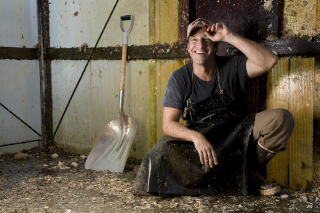
Learn about some dirty jobs from the Middle Ages:
Leeches were very important in the Middle Ages as a medicine. Leeches were used to suck out what was believed to be "bad blood". Barbers(who also were surgeons)needed leeches for their line of work. So, where did they get the leeches...from a leech collector. Usually barefoot, a leech collector walked through marshy waters, looking for leeches. Often times,leeches would grab on to the leech collector's body with their three rows of teeth. Infections from the leeches as well as disease carrying microbes living in the dirty water, made for a hazardous job.